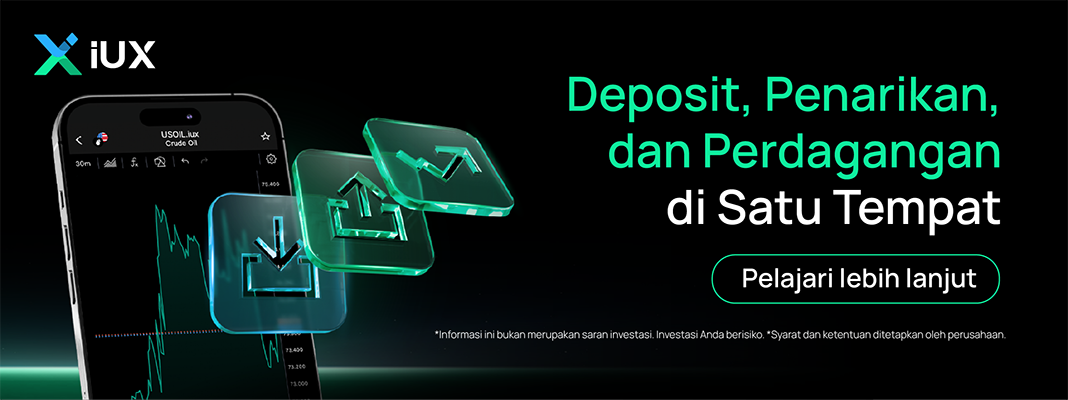Access to financial services is one of the most pressing issues of the modern days. In theory, the modern financial system provides a lot of opportunities and financial services, such as bank accounts, savings, credit, investment products, etc, but in reality a larger populace of even most countries do not have access even to the very basic financial services. Investment is even worse in terms of accessibility.
BY: JAMES RYAN
Financial and Tech Journalist
PENGANTAR REDAKSI: Artikel ini bersifat khusus, sengaja kami terbitkan dalam bahasa Inggris, ditulis langung oleh James Ryan, jurnalis teknologi dan keuangan.
Traditional finance, unfortunately, can do very little to solve this issue. For example, in the United Kingdom, financial inclusivity is one of the main priorities for the House of Commons Treasury Committee, but in its annual reports the committee admits that the existing situation is not really improving. Regulatory and banks interests don’t allow much to be done outside of direct government sponsorship of very limited programs. Obviously, such programs are only a palliative solution.
In developing countries the situation is even worse. For example, in Egypt, less than half of registered companies actually work with the banks.
Additionally, in developing countries local banks charge much higher interest due to unstable economic output and access to credit is restricted unduly to mitigate any losses on the local financial institutions. Large banks in developed countries are also unavailable for developing countries residents—partly due to local government policies, partly due to banks’ rules.
This is where fintech tries to help
Seeing these gaps in the financial services industry, providing wider access to financial services became the focus of the fintech industry.
Proliferation of cryptocurrencies led to development of a whole plethora of projects and full-fledged ecosystems, whose goal was to ensure easy access to financial products. Money transfers, lending platforms, even investment opportunities—blockchain and cryptocurrency made all of it available for everyone.
Cryptocurrency solves a lot of problems with financial inclusivity. There are virtually no geographical restrictions—residents of Egypt and Switzerland can use cryptocurrency on equal terms, transactions are much cheaper and even though the regulatory space is growing on this field, there is no intermediation from disinterested third parties (i.e. banks) to charge fee, make arbitrary judgment, and restrict access to capital.
But it comes with its fair share of problems.
- Lack of regulation is beneficial for accessibility, but it made crypto a safe haven for scammers and fraudsters. About 80 per cent of all Initial Coin Offerings (ICOs) turned out to be scam. Switching to IEO made crypto investments safer, but the landscape is evolving still.
- Cryptoassets are extremely volatile, so there is a huge risk of losing your savings turned into tokens or coins.
- Most blockchain projects are extremely focused on a single type of financial services, be it lending, trading or investments. Even the most developed fintech ecosystems offer very limited sets of related services. For example, Binance offers crypto exchange services, lending for traders and some investments options. So in order to get access to a full spectrum of financial services, users have to switch between multiple platforms and multiple cryptocurrencies, losing money on service fees and exchange fees.
Is there a comprehensive solution?
Fintech, as it relates to financial inclusivity, is advancing at rapid rates. The industry is maturing and better solutions are bound to appear in the market. Today, one of the most promising of these developments is the Nimbus platform.
Nimbus is a unique platform that offers a full spectrum of financial services—from lending to bridging to a plethora of investment products. However, most of these products are still being developed.
Most services offered are quite standard for today’s blockchain market—wallet with built-in coin tracker, exchange that has both centralized and P2P segments and social trading platform, crypto lending platforms. However, currently Nimbus is the only fintech platform that allows at-risk-arbitrage of digital assets in open architecture and a P2P exchange platform.
Waseem Mamlouk, senior financial technology analyst, Nimbus says “It is critical to provide these (DeFi) services to the 2 billion unbanked citizens of the world who do not have access to a traditional bank and no accounts for cross border transactions. They need a secure platform for peer to peer lending and crowdfunding as well. By cutting out the traditional bankers, fees are reduced by literally 99 percent and time to close the transaction goes from days to hours. Automation via smart contracts and Fintech Dapps will usher in the coming paradigm shift and Nimbus is well positioned to play a vital role with capable and experienced staff and a time tested platform”.
The central Nimbus feature, IPO Hub is scheduled for Q2 2021, but it shows much promise already. The price of entry into IPO investments is quite high, so this financial product is only available to large institutional investors. Some brokers have already managed to lower the threshold of entry into the IPO to five thousand dollars. But this amount is still too high for an ordinary market participant.
Nimbus IPO Hub will be the first platform that allows ordinary users to buy IPO stocks of large companies and become retail investors, which is phase II and III of the company’s product development. In this case, the minimum amount to buy is available to everyone and this is achieved through issuance of stablecoins (backed by USD). So, IPO entry threshold won’t be a problem for users as they will buy NSC tokens and invest them through Nimbus in the IPO that’s available. Nimbus will take over from here—exchange NSC for fiat money, buy shares, exchange profit for NSC and return NSC to users with profit. A special cluster of private blockchain servers will provide data integrity and protection and will ensure that all Nimbus users will get their return from investments.
IPO Hub isn’t the only fintech product on the Nimbus platform. There is also a social trading platform as well as a marketplace for financial products, such as stocks, ETFs, cryptocurrencies, IPO stocks, REIT, etc. in phase II and III of the company’s development.
“The coming steps toward taking this enterprise to the next level will be exciting and surprising to the marketplace, which has not yet seen such a complete player with the needed components to handle end to end DeFi banking services at a highly professional level with the needed assurance for institutional grade service delivery,” adds Mamlouk.
Basically, Nimbus will combine all essential financial services, from banks to funds on a single platform that allows access and participation in the global financial markets.
Will Nimbus erase the problem of access to finance? Probably not. The problem is too comprehensive and large for any single project to solve on its own, but it is certainly a step in the right direction for the fintech industry. [red]




